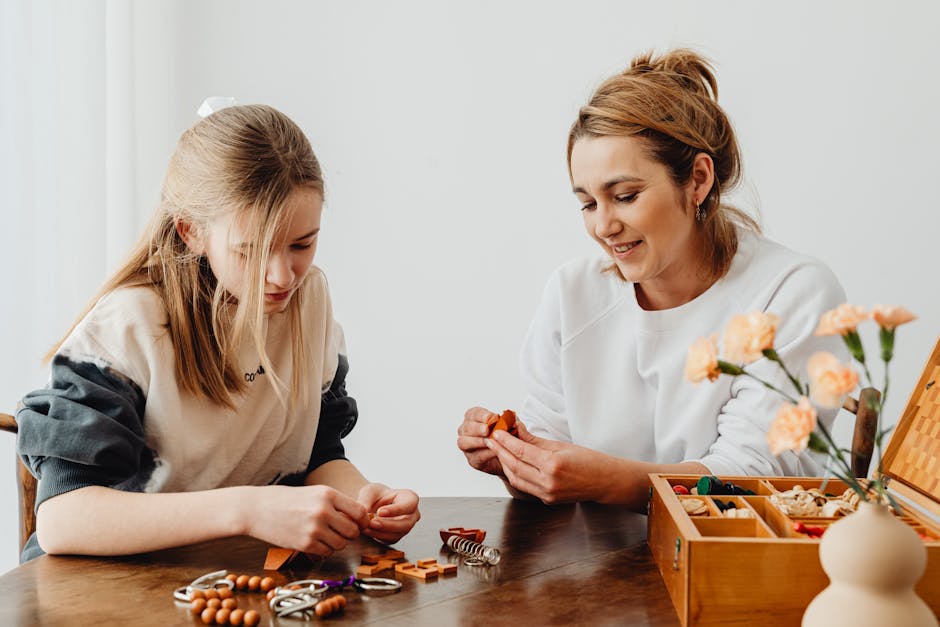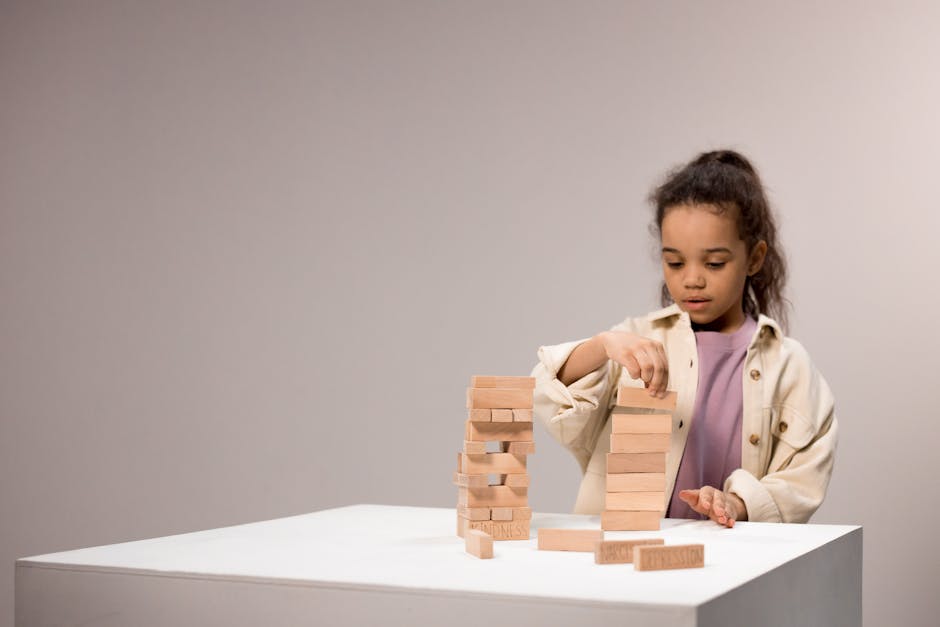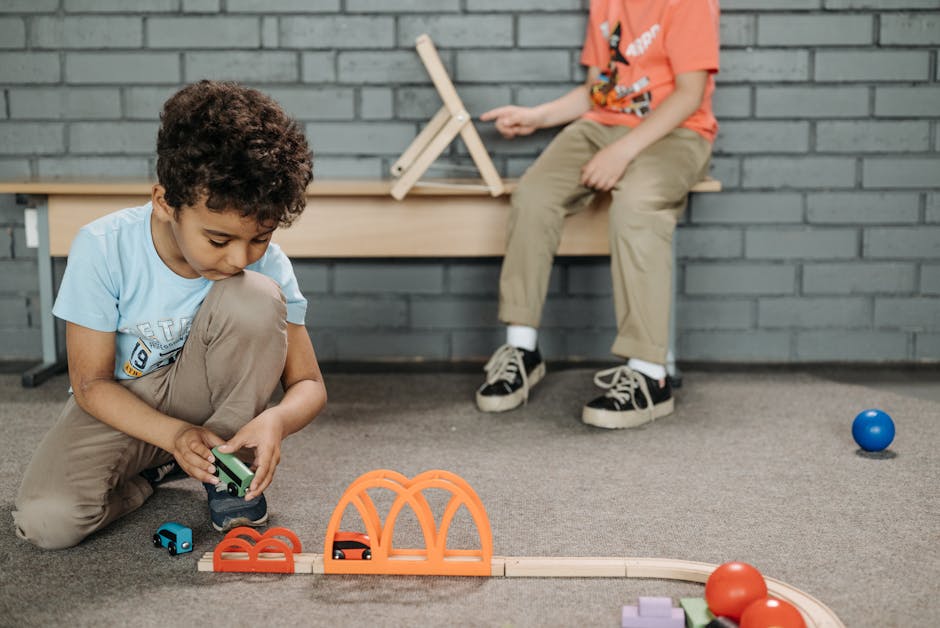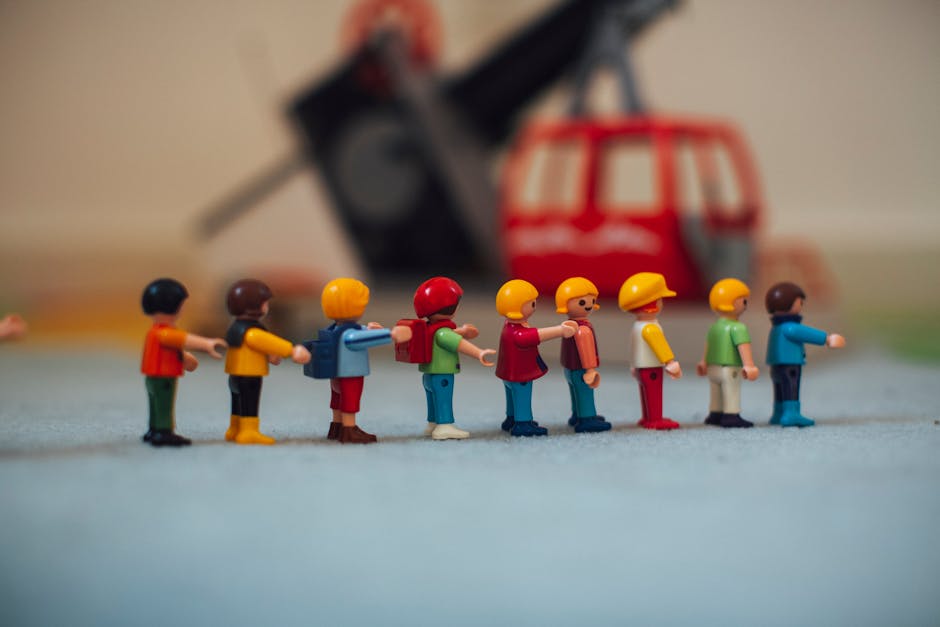Imagine watching your child immersed in a world of make-believe, where a simple box transforms into a spaceship or a teddy bear becomes a brave knight. It’s not just play; it’s a powerful learning experience.
Pretend toys are more than just fun—they’re tools that help build self-awareness. You might be wondering how a toy can have such an impact. The answer is simpler than you think. These toys allow children to explore different roles, understand emotions, and navigate social situations—all essential skills for developing self-awareness.
By engaging with pretend toys, your child learns to understand themselves and the world around them. Curious to know how this magic unfolds and how it benefits your child? Keep reading, and you’ll discover the hidden power of pretend play.

Credit: www.walmart.com
The Role Of Pretend Toys In Child Development
The Role of Pretend Toys in Child Development
Pretend toys are not just playthings. They are powerful tools that contribute significantly to a child’s development. By engaging with these toys, children build essential skills that shape their future.
Fostering Creativity And Imagination
Pretend toys, such as dress-up clothes or miniature kitchen sets, spark creativity and imagination. When children play with these toys, they create their own stories and scenarios. This imaginative play builds their ability to think outside the box.
Have you ever watched a child transform a simple block into a magical castle? This is creativity in action. It shows how pretend play encourages them to see the world not just as it is, but as it could be.
Enhancing Cognitive Skills
Engagement with pretend toys also enhances cognitive skills. Children learn problem-solving by figuring out how to fit a puzzle piece or balance a tower. These activities strengthen their thinking and reasoning abilities.
Consider the concentration a child displays while building with blocks. Each decision, each placement, develops their cognitive abilities. Such experiences are crucial for their mental growth.
Encouraging Emotional Growth
Pretend play is an emotional outlet. It allows children to express their feelings and understand others’ emotions. Through role-play, they learn empathy and how to navigate social interactions.
Imagine a child playing ‘doctor’ and comforting a stuffed animal. They practice care and compassion in a safe environment. This emotional growth is foundational for their social development.
So next time you see a child lost in play with their pretend toys, remember—it’s more than just fun. It’s a vital part of their development journey. How can you encourage this valuable play in your child’s life?

Credit: www.learningresources.com
Self-awareness Through Role Play
Role play is a powerful way to nurture self-awareness in children. By pretending to be someone else, kids begin to understand themselves better. It’s fascinating to see how a simple toy can spark a journey of self-discovery. Through role play, children step into different roles, exploring various aspects of human interaction. This process contributes to their understanding of who they are and how they fit into the world around them.
Understanding Different Perspectives
When children engage in role play, they start seeing the world through different eyes. Imagine your child pretending to be a doctor, a teacher, or even a superhero. Each role offers a unique perspective on life and society. This practice helps children appreciate diversity and realize that everyone experiences life differently.
As they switch from role to role, they learn that their actions can impact others. This awareness is crucial for developing better communication and social skills. Encourage your child to play different roles and watch how their understanding of the world broadens.
Developing Empathy
Role play is a fantastic tool for fostering empathy in children. By pretending to be someone else, they can experience emotions and situations they may not encounter in their daily lives. This experience helps them relate to the feelings of others, nurturing compassion and kindness.
Think of a time your child comforted a stuffed animal pretending it was hurt. They were practicing empathy, learning to care for others. Can you remember a moment when role play helped you understand someone else’s feelings better?
Building Confidence And Independence
Taking on different roles boosts a child’s confidence. When they pretend to be a leader or a problem-solver, they learn to trust their own abilities. Each successful role play session can be a confidence-building experience.
Moreover, role play allows children to make decisions independently. Whether deciding what a character should do next or how to solve a fictional problem, they gain a sense of autonomy. Encourage them to make choices during play, and watch their independence flourish.
Have you noticed your child feeling more confident after a role-playing session? Such moments are stepping stones in their journey towards self-reliance.
Social Skills And Interaction
Toys have always been a staple in childhood play. But did you know pretend toys can significantly boost your child’s social skills and interaction abilities? These toys, often seen as mere fun, are tools for developing self-awareness and understanding social dynamics. Through play, children learn essential skills that prepare them for real-world interactions, helping them to become more self-aware and confident.
Collaboration And Teamwork
Imagine a group of children playing ‘restaurant’ with pretend food and kitchen sets. Each child takes on a role—chef, waiter, or customer. They collaborate to create a storyline. This play teaches children the importance of working together. They learn how to share ideas and respect others’ contributions. Such experiences are invaluable in building teamwork skills.
Think about how this translates into real life. In school projects or sports, your child needs to work with others. Pretend play sets the foundation for understanding group dynamics. It’s the practice ground for roles they will take on later in life.
Communication Skills
Have you ever watched children playing with pretend phones or walkie-talkies? They mimic conversations, asking questions and exchanging information. This builds their communication skills. They learn how to express ideas clearly and listen actively.
Consider how crucial these skills are. Whether they’re talking to friends, teachers, or family, good communication is key. Through pretend play, children practice speaking and listening. It’s an opportunity to refine their ability to articulate thoughts and understand others.
Conflict Resolution
Conflicts are inevitable, even in pretend play. Perhaps two children disagree on who gets to be the ‘doctor’ in a play hospital. How do they resolve this? Pretend play offers a safe space to practice conflict resolution. They learn negotiation and compromise.
Ask yourself: how does your child handle disagreements? Pretend play encourages them to find solutions and understand different perspectives. It’s a chance to develop empathy and problem-solving skills. They learn not just to resolve conflicts, but to do so constructively.
Pretend toys do more than entertain; they equip your child with vital social skills. Through collaboration, communication, and conflict resolution, they gain self-awareness and prepare for the interactions life will throw their way.
Choosing The Right Pretend Toys
Choosing the right pretend toys can significantly impact a child’s growth. These toys help in building self-awareness and foster creativity. Selecting toys that resonate with a child’s interests ensures they engage more deeply. It’s essential to consider age, gender neutrality, and safety when choosing pretend toys.
Age-appropriate Options
Children develop at different speeds. Toys should match their developmental stage. For toddlers, simple toys like soft dolls or play food are ideal. Older kids might enjoy more complex sets, like doctor kits or construction tools. Matching the toy to the child’s age helps maintain interest and promotes learning.
Encouraging Gender-neutral Play
Gender-neutral toys expand play possibilities. They allow children to explore freely without societal constraints. Dolls, blocks, and kitchen sets appeal to all genders. Choosing such toys can foster open-mindedness and break stereotypes. It encourages children to explore diverse roles in their pretend play.
Safety And Quality Considerations
Safety is paramount in selecting pretend toys. Ensure toys have no small parts that can be swallowed. Check for non-toxic materials and sturdy construction. Quality toys last longer and provide safe play experiences. Always examine labels and reviews to ensure the product’s safety.
Parental Involvement In Pretend Play
Pretend play is not just child’s play. Parents play a crucial role. Your involvement can enhance learning and self-awareness. Children learn better with guidance and support. Parental involvement helps children explore their creativity. It also builds confidence and social skills.
Guiding Play Without Overstepping
Parents can guide play gently. Offer suggestions but let children lead. Too much control stifles creativity. Encourage children to make their own decisions. This builds independence and problem-solving skills. Children feel more confident when they lead.
Encouraging Open-ended Scenarios
Open-ended scenarios foster creativity. Provide toys that allow multiple uses. Avoid toys with one specific function. Encourage children to invent their own stories. Ask questions to inspire new ideas. “What happens next?” is a good prompt. This approach nurtures imagination and critical thinking.
Observing And Supporting Growth
Observation is key in pretend play. Watch how your child interacts with toys. Notice their problem-solving methods. Support their growth by offering praise. Encourage them when they face challenges. This boosts their self-esteem and resilience. Be a supportive presence, not just a spectator.
The Long-term Benefits Of Pretend Play
Pretend play is more than just fun. It helps children grow in many ways. This type of play lets kids explore different roles and situations. They learn about the world and themselves. As they pretend, they build important skills that last a lifetime. These skills include learning, emotional intelligence, and problem-solving. Let’s dive into the long-term benefits of pretend play.
Lifelong Learning And Adaptability
Children learn by doing. Pretend play offers rich learning experiences. Kids mimic adult actions, expanding their understanding of the world. They practice skills like decision-making and negotiation. These activities boost adaptability. Children learn to adjust to new situations. This flexibility is vital in a changing world.
Emotional Intelligence Development
Pretend play helps children recognize and express feelings. They explore emotions like joy, sadness, and anger. Kids learn empathy by taking on different roles. Understanding others’ feelings builds emotional intelligence. This skill enhances relationships and communication. As they grow, children use this understanding in their daily lives.
Strengthening Problem-solving Skills
Kids face challenges in pretend play. They must think of solutions to problems. This can involve building a fort or navigating a pirate ship. Problem-solving in play boosts creativity. Children learn to approach problems from different angles. These skills are crucial for future success in life and work.

Credit: m.facebook.com
Frequently Asked Questions
What Are Pretend Toys?
Pretend toys are playthings that encourage imaginative role-playing. They include dolls, costumes, and playsets. These toys help children explore different roles and scenarios. They foster creativity and self-expression. Through pretend play, kids develop social skills and self-awareness. Pretend toys are essential for cognitive and emotional growth.
How Do Pretend Toys Aid Self-awareness?
Pretend toys allow children to explore different identities and emotions. Through role-playing, kids understand themselves better. They learn empathy and perspective-taking. Pretend play helps develop self-regulation and decision-making skills. It supports emotional intelligence and builds confidence. Pretend toys are crucial for self-discovery and personal growth.
Why Are Pretend Toys Important For Children?
Pretend toys stimulate imagination and creativity. They enhance problem-solving and social skills. Through pretend play, children learn to navigate emotions and relationships. They foster communication and cooperation. Pretend toys support cognitive development and emotional resilience. They are vital tools for nurturing self-awareness and identity formation.
Can Pretend Play Improve Social Skills?
Yes, pretend play enhances social skills significantly. It encourages cooperation and communication among peers. Through role-playing, children learn to share and negotiate. They understand social norms and develop empathy. Pretend play helps build friendships and teamwork. It is essential for developing effective interpersonal skills and social competence.
Conclusion
Pretend toys play a key role in building self-awareness. Children learn by imagining different scenarios. They explore emotions, roles, and relationships. This helps them understand themselves better. Pretend play encourages creativity and problem-solving. Kids develop essential social skills while playing.
They learn empathy and communication. Parents can support by providing diverse toys. Encourage children to express thoughts and feelings. Pretend play offers a safe space for growth. It nurtures emotional and social development. Investing in pretend toys benefits children greatly.
They gain self-awareness and confidence. Ready for real-world challenges.






